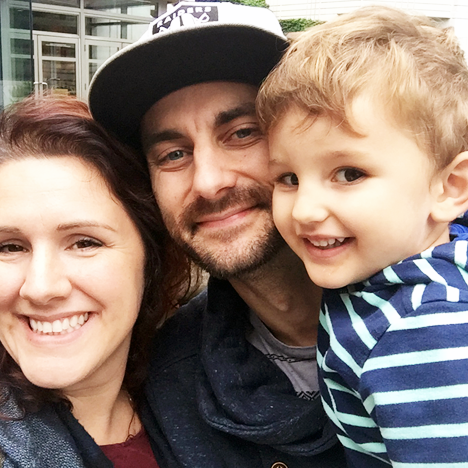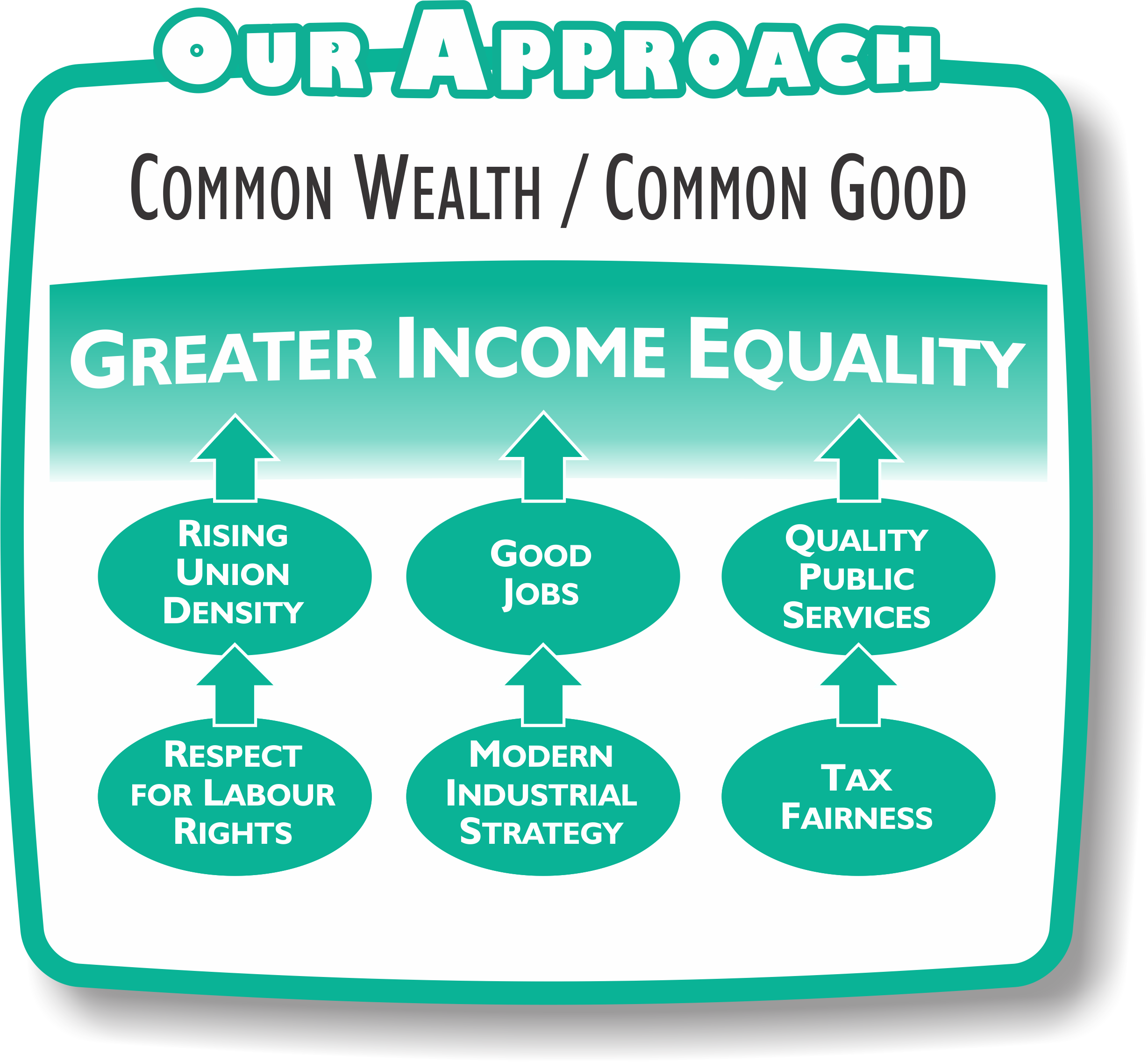CHILD NEGLECT
Being indigenous is dangerous to your health far too often

Alex Carr with his daughter Spencer
ALEX CARR CONSIDERS HIMSELF LUCKY. He finally found suitable daycare in Ottawa for his one-year-old daughter, Spencer. It’ll cost him $1,800 a month. He’s happy to pay it.
In Vancouver Kristen Keighley-Wight pays $1,000 a month for only three days of childcare a week for their three-year-old son. That’s all her two-income family can afford.
Both families are two-income households with well-paying jobs—part of what Justin Trudeau likes to call the “middle class.” They can’t imagine how working class families or single parents find quality childcare they can afford.
Even when you can afford to pay, finding childcare takes more than putting your kids on the waiting list the moment they are born.
“We were aggressively calling them,” said Alex. “I was even thinking I’d have to delay my return to work. At the last minute, we got lucky.”
It’s not that there weren’t any more affordable options. It’s just that they had to ask themselves, “at what price?”
As Kristen recalls, “We saw places that we just turned around and walked out of real quickly. We saw a bunch of triggers and places that weren’t safe and we said we’re not going to leave our kids there because we don’t trust them. And then we were feeling just awful because we know that some parents don’t have the option to say no to that.”

Kristen Keighley-Wight with her husband and young son
A universal childcare plan for all Canadians would solve the dilemma. It would ensure that all children are cared for in centres that meet or exceed all requisite health and safety standards, staffed with trained professionals. It would level the playing field so that everyone would be able to afford the same quality of care for their children regardless of income, financial resources or location.
Unions have long supported the implementation of a national childcare plan. As Canadian Labour Congress (CLC) President Hassan Yussuff stated, “We must ensure all governments invest in public and not-for-profit care, because this is a key component of ensuring quality.”
The Canadian Union of Public Employees (CUPE) represents the 21.5 per cent of Canadian childcare staff who are unionized and points to studies which show the positive effects of unionization on the childcare sector. Staff in unionized centres not only receive better pay, but are more likely to receive paid sick days, extended medical, life and disability insurance, paid time off for professional development training, and other benefits.
This not means that staff can afford to stay home when they’re sick rather than spreading their illness to the children. It also means these centres can attract and retain more educated and better qualified staff. And this leads to better quality child care.
The tragedy of ‘Baby Mac’
Kate Spence has two children. She has chilling first-hand experience of the harm sub-standard childcare can bring. Fifteen-month old Macallan Wayne Saini, known as Baby Mac, died at the daycare her daughter was also going to.
The death is still under investigation. The daycare operator is no longer in business. After Baby Mac’s death, it was disclosed that the daycare operator of the daycare had three previous regulation violations but was never fined.
“When my daughter was born in 2015 we put her on the wait list for licensed facilities and there was nothing. We were laughed at when we called daycares to put our names on the list and we said ‘Well who could possibly be ahead of us?’ because she was just born, but we found out that people wait up to four years to get a spot in licensed childcare here. It’s quite dire.”
Kate and her husband were unable to find licensed childcare. They finally had to settle for an unlicensed home daycare a friend recommended.
“We had some small issues with this provider but you know beggars can’t be choosers when it comes down to what you can get in Vancouver and we never thought our daughter was in danger. Ultimately, it turns out we were being deceived by this provider. It was life altering, devastating.
“It was a tragic consequence for this one family who have also become very involved in advocating for more regulated childcare, more licensed spaces, more qualifications and better wages for ECE workers so then people are staying in the profession so there’s no space for these few negligent people who are going to prey on parents’ vulnerabilities and desperation.”
Kate has also become active with the Coalition of Child Care Advocates of BC. It appears the new provincial government there is taking steps toward a better system.
Childcare investment more than pays for itself
Lynell Anderson, CPA, CGA, emphasizes the economic benefits of universal childcare. Citing Quebec, which has such a program, she notes, “Research from Quebec shows that their childcare investment more than pays for itself already, primarily because of the revenues and economic activity associated with the substantial increase in mothers’ labour force participation.
“The benefits of quality childcare in the early years also lead to higher rates of post-secondary education, higher earnings, better health, etc.”
Even Bank of Canada head, Stephen Poloz, believes that government-subsidized childcare would assist more Canadians, especially women, Indigenous people, people with disabilities and young parents, to enter the workforce and could boost Canada’s output by $30 billion a year.
In a study cited by CUPE it was noted that: “Better wages and working conditions is a predictor of quality and it leads to more stability due to lower turnover…. Unionization not only has a positive impact on childcare staff, but also on children in unionized centres, their parents and society.”
For all these reasons and more, it came as a shock to both parents and childcare advocates alike when the federal government’s recent, supposedly “gender equity,” budget, came up crickets on a national childcare plan.
“We are astounded Finance Minister Bill Morneau has chosen to ignore the solid evidence that lack of access to affordable childcare is the biggest barrier to women’s equal participation in the paid labour force,” states Morna Ballantyne of Child Care Now.
Child Care Now further stated in a news release that: “without more federal money, together with a much stronger federal childcare policy framework, the gaps in quality, affordability and access will widen across the country, as will the gaps between regions, social classes and women and men.”
Universal childcare will reduce inequality
The parents interviewed all agreed that without national universal childcare, inequality will continue to proliferate, making some regions of the country have-nots, widening the gap between classes, and hitting women particularly hard.
As Alex Carr noted, “You need it to be funded by all levels of government. I just see it as an extension of the school system we have which people seem to accept without question. We wanted trained ECE staff because they have a model of childcare that they ascribe to. Spencer loves it. She’s excited to go to daycare.
“Maybe there’s a gender issue there? If you have a proper daycare system, that benefits the participation of women more than it does men so maybe, given that a lot of women’s issues aren’t front and centre in most elections, maybe that’s another reason why it doesn’t get the attention it deserves.”
Kate Spence, who is herself a teacher, spoke from her experience, “It baffles me as to why some people have resistance to adopting a national childcare plan. I’m genuinely baffled.
“A lot of businesses have really jumped on the plan because they are having a shortage of workers. People can’t come back to work because they can’t find proper childcare. I see kids coming to school without kindergarten skills, without social skills and emotional regulation skills. It hurts my heart.”
But most of all, Kate Spence is concerned for the safety of children in childcare centres without trained ECE staff and proper oversight.
“What happened to Baby Mac has to stop. There was another similar case here, fortunately no children were injured or died, but these situations of deception and negligence are still happening.
“This time someone caught the daycare operator before a tragedy occurred. Someday I hope our country will be proud when we’ve adopted a national childcare plan that includes and protects all children.”
Unions have long supported universal childcare, which must include a unionized childcare workforce. As CUPE has noted, unionized teachers and nurses “are strong advocates for their field and their profession but also see unionization as a way to advance issues in their sectors,” and they believe we would see the same with a larger number of unionized childcare workers.
As mother Kristen Keighley-Wight states, “A national childcare plan has always made sense to me. It should be like universal healthcare and like our education system—available to everyone.”
- 30 -












Add new comment